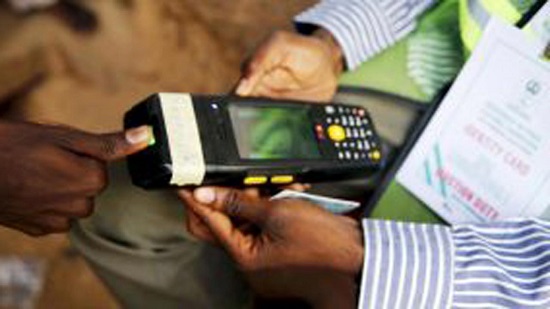This post has already been read 2134 times!
With just three days separating Nigerians and the 2019 general elections, concerns are mounting over the efficiency of the system, especially the use of card readers.
Nigerians, who spoke with The Guardian on the matter, called on the Independent National Electoral Commission (INEC), to ensure seamless electioneering processes.
According to them, past experiences of where card readers failed to accredit voters accordingly, should be avoided if the entire process must be regarded as fast and transparent.
What is card reader?
The card reader is essentially an electronic device manufactured to render data and information verification, authentication, accreditation. This process is enabled by three distinct process layers – namely: Biometric Software, Hardware interface and embedded Scanner Chips.
The card has an embedded chip or magnetic strip that is read by the firmware and like a mobile phone, has technology within it to verify the data residing in the card with that in the server before an electorate can cast his/her vote, which is later transferred to a central data base.
After verification, the whole process of casting ones vote should be painless and should not be any longer than 60 seconds.
Some previous failures
Recall that three voter card readers failed to read former President Goodluck Jonathan’s biometrics and accredit him for voting at the Otazi playground polling centre in his home town, Otueke, Bayelsa State, during the 2015 elections.
President Jonathan arrived the Polling Unit 13 at about 9. 20 a.m for the election on that day, but could not be accredited as at 10 a.m. as three different card readers failed to capture his biometrics.
The same scenario also played out at the Ekiti Governorship election of 2018, where the Peoples Democratic Party flagbearer, Prof. Olusola Eleka, and wife’s voters’ card were not read by the card reader.
Card readers also malfunctioned in some areas during the Osun State governorship election.
Though, later rectified, the device malfunctioned in Ife and Oriade, among other places and that slowed the process.
Last November in Kebbi State, no less than 56 out of 3,882 card readers failed to capture the people’s data in the state when they were tested.
These are some of the failures that had played out since it was introduced in 2015.
Adaeze Obioha, a Lagos –based voter, called on INEC to do everything within its power to ensure the card readers are very functional and up todate.
According to her, past failures should not be repeated in 2019, “as this a very crucial election. It will go a long way to determine our future as a country.”
ICT Experts view
To ICT experts, who spoke with The Guardian, technology is critical to any electionerring process.
President, Association of Telecommunications Companies of Nigeria (ATCON), Olusola Teniola, technology introduces the ability of INEC to maximise its capacity and responsiveness to the electorate and the eventual results of an election.
On what could hinder its seamless process, the ATCON president said “If the INEC officials are not fully trained and comfortable using and adopting technology then this will bring in cases and situations where human intervention may slow down the election process.”
According to him, it is very evident that the technology for e-elections and instant collation of results from different regions is available, which as a country needs to adopt, to prevent malpractices surrounding polling booths.
Lending its voice, Chairman, Publicity, Events and Trade Services Committee, Nigeria Computer Society (NCS), Jide Awe, the processes that matter are not technology alone, though technology is integral, “it is more than a technology matter. Security processes are critical (IT and non IT). Backup and contingency processes must be in place. Improved performance and availability, building redundancy, and applying learning from previous experiences are critical.
“Even though INEC says the upgraded Smart Card Readers are faster, more robust, there must be quality preparation. Areas to be covered include personnel, testing, training and overall project management.”
In terms of guaranteeing the success of the election, the Director-General, Delta State Innovation Hub (DSHuB), Chris Uwaje, said the probability of the smoothness of a digital electioneering process depends on many factors based on the model adopted in many countries.
INEC’s Assurance
The Chairman of INEC, Professor Mahmood Yakubu, has assured of improved functionality of the cardd readers.
Speaking in Abuja, Prof. Yakubu noted that the problem with card readers witnessed in past elections were not technical but with the training of the ad hoc staff.
But Prof Yakubu assured Nigerians that steps had been taken to check the problems with handling of the machine. We have taken steps to improve the process of the smart card readers and we will continue to do so.
‘’The commission assures Nigerians that the smart card reader has become an integral part of the electoral process and will be deployed for the conduct of the 2019 general elections,” he said.



